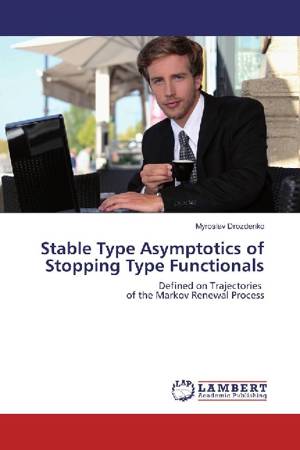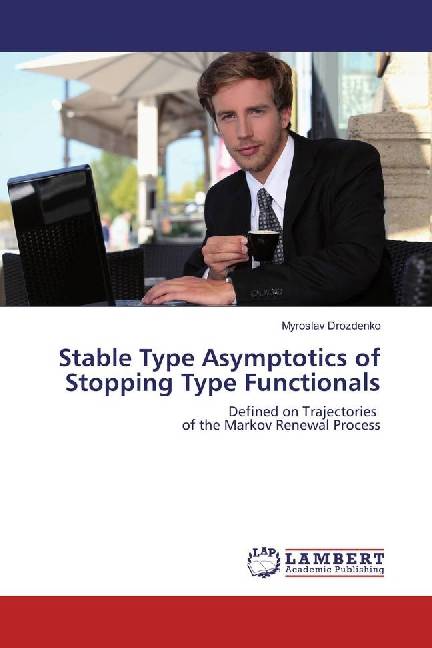
- Afhalen na 1 uur in een winkel met voorraad
- Gratis thuislevering in België vanaf € 30
- Ruim aanbod met 7 miljoen producten
- Afhalen na 1 uur in een winkel met voorraad
- Gratis thuislevering in België vanaf € 30
- Ruim aanbod met 7 miljoen producten
Zoeken
Stable Type Asymptotics of Stopping Type Functionals
Defined on Trajectories of the Markov Renewal Process
Myroslav Drozdenko
Paperback | Engels
€ 55,45
+ 110 punten
Omschrijving
The book is devoted to the analysis of limit behavior of the normalized stopping type functionals defined on the trajectories of the Markov renewal process. Weak convergence of such functionals is often equivalent to weak convergence of the normalized sums of i.i.d. random variables in the non-triangular-array-mode and therefore corresponding non-concentrated in zero limit processes is of the stable type. In the book under not very restrictive initial assumptions (including assumption of ergodicity of the embedded Markov chain and some quite naturally appearing other assumptions) we describe the class of all possible limit laws and give several variants of the necessary and sufficient conditions of weak convergence to every element from the limit class. After that the results are extended and applied to the analysis of the perturbed thinned flows of rare events. Examples of applications of the presented theoretical results in particular to the risk and the queuing theories are presented. We give also some sketches of extensions of the results to the case of asymptotics of the infinitely divisible type.
Specificaties
Betrokkenen
- Auteur(s):
- Uitgeverij:
Inhoud
- Aantal bladzijden:
- 136
- Taal:
- Engels
Eigenschappen
- Productcode (EAN):
- 9783659683008
- Uitvoering:
- Paperback
- Afmetingen:
- 150 mm x 220 mm

Alleen bij Standaard Boekhandel
+ 110 punten op je klantenkaart van Standaard Boekhandel
Beoordelingen
We publiceren alleen reviews die voldoen aan de voorwaarden voor reviews. Bekijk onze voorwaarden voor reviews.







